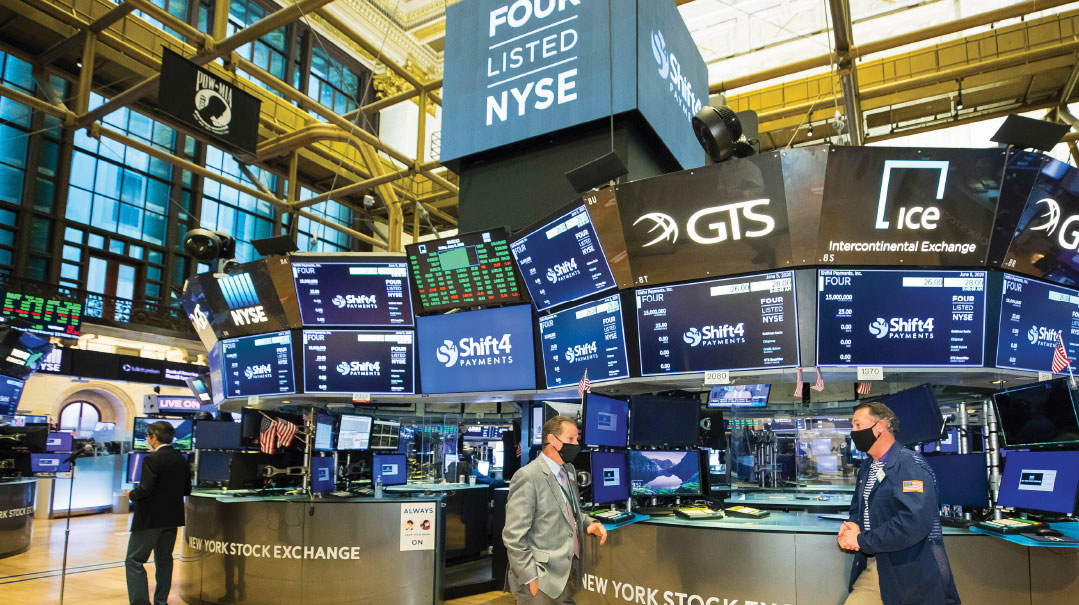Buyer Beware

Is the US economy about to bounce back?

Nearly three months ago, the stock market hit its lowest point since the election of Donald Trump. Over 30 days ending on March 20, the Dow Jones Industrials Average lost a staggering 10,000 points, or some 30 percent of its value. Those were the early weeks of the coronavirus pandemic in the United States, and many investors decided to sell, even at a loss.
Less than three months later, the reality is entirely different. Last week, the Nasdaq rose to its highest level ever, buoyed by improving jobs numbers and an uptick in consumer spending.
At the same time, the United States is officially in a recession, the unemployment rate remains at 13.3 percent, and economists are expecting disappointing profit numbers from large corporations. So what gives? How can we have a booming stock market and an anemic economy?
A few weeks ago, we speculated about the shape of the post-coronavirus recovery. Would it be U-shaped (slow recovery), L-shaped (protracted downturn), or V-shaped (a sharp rise to pre-coronavirus levels?) Increasingly, economic indicators point to the latter, but there’s no clear consensus.
“I think a lot of smart money is still sitting on the side,” said Veljko Fotak, a University at Buffalo associate professor of finance. “Yet, clearly, there is at least a portion of investors who are very optimistic about the likelihood of a fast recovery.”
Fotak said the disconnect between a shaky economic outlook and a sky-high stock market revolves around four main drivers.
“The first, and probably most important, is the massive support offered by various government programs,” he said. Low interest rates, cheap loans, and direct market interventions by the Federal Reserve and other government agencies are boosting corporate valuations.
The second factor, Professor Fotak noted, is the disconnection between “Main Street” and “Wall Street.” “Firms are much more slanted toward sectors, such as pharmaceuticals and tech businesses, which have performed well during this crisis,” he said. “Tech stocks make up about a quarter of the S&P500. Even more telling, Amazon, Alphabet, Apple, and Microsoft account for almost 20% of the market capitalization of S&P500 companies.”
Third, Fotak said, economic data is backward-looking, while stock markets are, at least in theory, forward-looking. “When we read data on recent economic trends, we are necessarily peering into the past. But the stock market is valuing firms based on their expected future profits. During sharp, supposedly temporary downturns, the disconnect can be very large.”
The last factor is the presence of a large number of non-professional, retail traders in today’s market. The recent rally has been accompanied by low trading volumes, he notes, suggesting that many large institutional traders are taking a wait-and-see approach. “That leaves a market dominated by retail traders (perhaps people working from home looking to speculate), and with relatively thin trading volumes, even relatively small trades can have a significant price impact.
“Even after taking all of the above into account, I believe current market valuations are over optimistic,” he concluded. “It is hard, if not impossible, to rationalize valuations that seem to imply that the current pandemic will have no long-term impact on firm profitability.”
But can we compare this market to past downturns? After all, before the coronavirus pandemic stunted economic growth, the general health of the economy was historically strong. Perhaps investors are betting that once the coronavirus hump has been overcome, economic activity will quickly return to normal.
Aris Protopapadakis, an associate professor emeritus of finance at the University of Southern California, is skeptical of that sentiment.
“Part of the issue is that not only has the broad hospitality industry had trouble opening up, but it is also unclear if people will, in fact, go back to their old habits of travel and restaurants,” he said.
Like Fotak, Protopapadakis also noted that stock market valuations might be overly optimistic. “The market’s valuation depends on how the market forecasts future coronavirus developments. Encouraging news on a vaccine — the market goes up. Bad news on the longevity of the crisis — the market goes down.”
Protopapadakis offered one additional cautionary note: The stock market reflects only the corporate sector, not the entire US economy. It doesn’t valuate small businesses or private contractors, who may or may not recover from the downturn. Or the jobless who can’t find new employment.
The old adage seems to apply here: Buyer beware.
(Originally featured in Mishpacha, Issue 815)
Oops! We could not locate your form.







